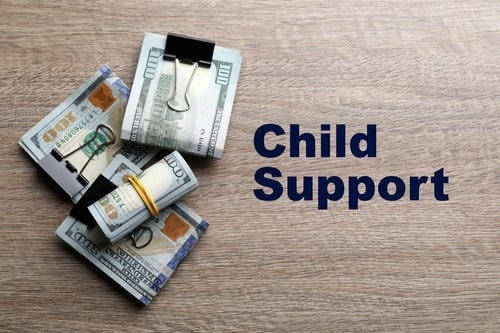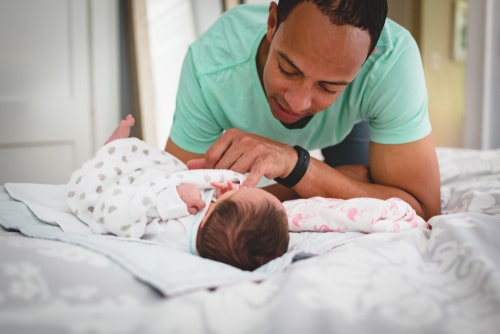 1580 N. Northwest Highway, Suite 12, Park Ridge, IL 60068
1580 N. Northwest Highway, Suite 12, Park Ridge, IL 60068
Recent Blog Posts
Does Infidelity Impact an Illinois Divorce?
 Most people would be surprised to find that, technically speaking, you can be jailed for committing adultery in the state of Illinois. In fact, under the current law, you could face up to a year in jail for the offense. Practically speaking, this law is rarely ever enforced, and the wording of the law is fairly ambiguous.
Most people would be surprised to find that, technically speaking, you can be jailed for committing adultery in the state of Illinois. In fact, under the current law, you could face up to a year in jail for the offense. Practically speaking, this law is rarely ever enforced, and the wording of the law is fairly ambiguous.
Even if a prosecutor chose to charge someone for the act of adultery, making those charges stick would be next to impossible. While prosecution for adultery is practically non-existent, there are plenty of angry spouses in the middle of a divorce who want to know whether their spouse’s indiscretion could give them an advantage.
Those dealing with an adulterous spouse should speak to a knowledgeable Chicago divorce lawyer who can listen to their story and help create a solid plan moving forward. While adultery generally makes little difference in an Illinois divorce, if there was dissipation of assets because of adultery, this could make a difference. An attorney can help you sort out the details of your divorce, protecting your rights and your future every step of the way.
Can an Order of Protection Stop an Abusive Spouse From Possessing a Firearm?
 A recent landmark Supreme Court decision ruled on a case related to the Second Amendment rights of people under orders of protection. This case, US vs. Rahimi, addressed the issue of whether someone subject to a restraining order can have their access to weapons restricted.
A recent landmark Supreme Court decision ruled on a case related to the Second Amendment rights of people under orders of protection. This case, US vs. Rahimi, addressed the issue of whether someone subject to a restraining order can have their access to weapons restricted.
The ruling has significant implications in Illinois, where similar state laws dictate the possession of firearms by people who have been issued orders of protection. This article will discuss when someone’s possession of a weapon can be restricted because of an order of protection. If you think you could be directly impacted, contact a knowledgeable Chicago, IL family law attorney to learn more.
How Does an Order of Protection Affect Firearm Possession in Illinois?
When someone is accused of committing domestic violence, an order of protection can be issued against the alleged abuser. Otherwise known as a restraining order, an order of protection places restrictions on where the alleged abuser can go, who he/she can communicate with, and his/her right to bear arms. The state of Illinois has strict regulations about firearm possession for people under orders of protection, which include:
What Makes a Prenup Enforceable?
 Many couples decide to draw up a prenuptial agreement before their wedding. It has nothing to do with whether they think they will get a divorce. Having a plan in place “just in case” it becomes relevant in the future can provide them with a great degree of peace of mind. However, a common mistake people make is not hiring a lawyer to help them draft it. Without the proper legal expertise to understand what needs to be included, you might end up drafting a document that cannot be enforced and has no legal value. Rather than benefitting from the fact that you planned ahead, you might find yourself caught by surprise without any legally valid plan at all. If you and your fiance are considering signing a prenup, speak with a qualified Chicago, IL family law attorney who can help you avoid mistakes and draft an enforceable document.
Many couples decide to draw up a prenuptial agreement before their wedding. It has nothing to do with whether they think they will get a divorce. Having a plan in place “just in case” it becomes relevant in the future can provide them with a great degree of peace of mind. However, a common mistake people make is not hiring a lawyer to help them draft it. Without the proper legal expertise to understand what needs to be included, you might end up drafting a document that cannot be enforced and has no legal value. Rather than benefitting from the fact that you planned ahead, you might find yourself caught by surprise without any legally valid plan at all. If you and your fiance are considering signing a prenup, speak with a qualified Chicago, IL family law attorney who can help you avoid mistakes and draft an enforceable document.
3 Characteristics of an Enforceable Prenup
All prenups are different since their content is specific to the couple signing it. However, there are some characteristics that need to be present for it to be considered valid and enforceable. These include:
Birdnesting in Illinois
 One fact that can be said about all people is that everyone is different. Even if you are from the same town, family, or religion, chances are you will react differently to the same thing. Because people are all so different, no two marriages are the same, and that goes for divorce, too. Some couples treat each other as enemies during their divorce and prefer to completely avoid each other whenever possible after it is finalized. Many divorced couples end up following common patterns, including a typical division of assets and shared custody plan. And other couples manage to live as partners even after their divorce. One interesting option for custody and living accommodations after divorce is known as birdnesting. This article will examine what birdnesting means, but if you are seriously considering it, speak with an experienced Cook County, IL family law attorney to find out more.
One fact that can be said about all people is that everyone is different. Even if you are from the same town, family, or religion, chances are you will react differently to the same thing. Because people are all so different, no two marriages are the same, and that goes for divorce, too. Some couples treat each other as enemies during their divorce and prefer to completely avoid each other whenever possible after it is finalized. Many divorced couples end up following common patterns, including a typical division of assets and shared custody plan. And other couples manage to live as partners even after their divorce. One interesting option for custody and living accommodations after divorce is known as birdnesting. This article will examine what birdnesting means, but if you are seriously considering it, speak with an experienced Cook County, IL family law attorney to find out more.
My Ex Refuses to Pay Child Support. What Can I Do?
 Raising children is an expensive endeavor. Whether you are paying for typical, expected things like clothing, food, and school, or there are unanticipated costs like medical bills or special tutoring, children have unique needs and these needs often cost money. When parents get a divorce and go from sharing expenses and income to handling these matters separately, it can be extremely stressful for a parent who is not financially independent or stable. While child support is intended to help parents in this situation, it can be detrimental if the other spouse suddenly stops making their payments. If your ex has stopped paying child support and is refusing to talk to you about it, contact a Chicago, IL divorce lawyer who can pursue ways to get these payments again.
Raising children is an expensive endeavor. Whether you are paying for typical, expected things like clothing, food, and school, or there are unanticipated costs like medical bills or special tutoring, children have unique needs and these needs often cost money. When parents get a divorce and go from sharing expenses and income to handling these matters separately, it can be extremely stressful for a parent who is not financially independent or stable. While child support is intended to help parents in this situation, it can be detrimental if the other spouse suddenly stops making their payments. If your ex has stopped paying child support and is refusing to talk to you about it, contact a Chicago, IL divorce lawyer who can pursue ways to get these payments again.
Raising Children After a Divorce
Married parents are generally left alone to raise their children and manage their finances without the courts getting involved, as long as no one is being neglected or harmed. That changes when they get a divorce and the court suddenly needs to approve a plan for where and when the child will stay and how their expenses will be covered.
When Is a Postnup a Good Idea?
 A prenuptial agreement is a document signed by two people about to enter into a marriage that explains what will happen to their assets if they end up getting a divorce at some point in the future. It takes a lot of doubt out of the equation and can give both people the peace of mind that comes with knowing there are guidelines to follow if something they hope does not happen ends up happening. Some people think of it as a safety net for “just in case.” However, a lot of engaged couples would prefer not to think about the possibility that they may end up divorced, and so they decide not to sign a prenup. If later in the marriage they come to regret that decision, they have the option of signing a postnuptial agreement. Speak with a qualified Cook County, IL postnuptial agreement lawyer to find out more about what is involved.
A prenuptial agreement is a document signed by two people about to enter into a marriage that explains what will happen to their assets if they end up getting a divorce at some point in the future. It takes a lot of doubt out of the equation and can give both people the peace of mind that comes with knowing there are guidelines to follow if something they hope does not happen ends up happening. Some people think of it as a safety net for “just in case.” However, a lot of engaged couples would prefer not to think about the possibility that they may end up divorced, and so they decide not to sign a prenup. If later in the marriage they come to regret that decision, they have the option of signing a postnuptial agreement. Speak with a qualified Cook County, IL postnuptial agreement lawyer to find out more about what is involved.
Content of a Postnup
A postnuptial agreement is very similar to a prenuptial agreement, the major difference being that it is signed by two married spouses rather than by an engaged couple. It details each person’s financial responsibilities as well as which things would be considered marital assets - subject to a division of assets in a hypothetical divorce - and which would not. Aspects of a postnuptial agreement include:
Reasons to Establish Paternity in Illinois
 When a woman gives birth in the state of Illinois, she is legally recognized as the baby’s mother, and if she has a husband, he is automatically considered the father. If she is not married, however, no one is automatically recognized as the father. Even if a man has been present, involved, and supportive throughout the pregnancy and cannot wait to meet his child, he will have no legal rights as a parent unless he establishes his paternity. On the other hand, once he does establish paternity, he can have legal rights as a parent and the child can benefit as well. If you are not married but about to become a father, speak with a knowledgeable Cook County, IL paternity lawyer to find out how you can become legally recognized as the parent.
When a woman gives birth in the state of Illinois, she is legally recognized as the baby’s mother, and if she has a husband, he is automatically considered the father. If she is not married, however, no one is automatically recognized as the father. Even if a man has been present, involved, and supportive throughout the pregnancy and cannot wait to meet his child, he will have no legal rights as a parent unless he establishes his paternity. On the other hand, once he does establish paternity, he can have legal rights as a parent and the child can benefit as well. If you are not married but about to become a father, speak with a knowledgeable Cook County, IL paternity lawyer to find out how you can become legally recognized as the parent.
What Difference Does Paternity Make if I Will Be an Involved Father Anyway?
Unmarried parents do not have the same type of regulation and legally binding arrangements as parents who once were married but are now divorced. There is no parenting plan or custody agreement if the father is not legally recognized as such. This can have a significant impact on all three of the people involved in this relationship.
How Are Adults With Disabilities Cared for in Illinois?
 An 18th birthday is often marked with a celebration of new-found freedoms. Once someone turns 18 years old, they are no longer considered a minor in the United States. They are legally authorized to live on their own and make adult decisions for themselves. However, an 18th birthday can present challenges for people with disabilities. On the one hand, they are no longer minors. On the other hand, they might not be able to efficiently manage their own money and assets or live on their own even if they want to. If their parents have certain ideas for how their children should live and their adult children disagree with them, it can complicate matters further. In some cases, an adult guardian can be granted to protect their interests. If obtaining an adult guardianship is something that might happen in your family, a Cook County, IL family law attorney can help you navigate this process.
An 18th birthday is often marked with a celebration of new-found freedoms. Once someone turns 18 years old, they are no longer considered a minor in the United States. They are legally authorized to live on their own and make adult decisions for themselves. However, an 18th birthday can present challenges for people with disabilities. On the one hand, they are no longer minors. On the other hand, they might not be able to efficiently manage their own money and assets or live on their own even if they want to. If their parents have certain ideas for how their children should live and their adult children disagree with them, it can complicate matters further. In some cases, an adult guardian can be granted to protect their interests. If obtaining an adult guardianship is something that might happen in your family, a Cook County, IL family law attorney can help you navigate this process.
3 Ways to Prove You Were Forced to Sign a Prenup in Illinois
 People are relatively familiar with the concept of a prenuptial agreement. Even if they are not sure of everything that needs to be included, they have a general understanding that this is a document signed by two people before they get married which aims to outline what would happen with their finances if they get a divorce. Of course, this general description does not cover all the aspects that need to be agreed on and people might find that they signed a document they did not fully understand. If you signed a prenuptial agreement and you realize now that it went against your interests but you were pressured into signing it, a Cook County, IL prenuptial agreement attorney can review it and offer invaluable guidance on how you should proceed.
People are relatively familiar with the concept of a prenuptial agreement. Even if they are not sure of everything that needs to be included, they have a general understanding that this is a document signed by two people before they get married which aims to outline what would happen with their finances if they get a divorce. Of course, this general description does not cover all the aspects that need to be agreed on and people might find that they signed a document they did not fully understand. If you signed a prenuptial agreement and you realize now that it went against your interests but you were pressured into signing it, a Cook County, IL prenuptial agreement attorney can review it and offer invaluable guidance on how you should proceed.
How Can I Prove I Signed a Prenup Against My Will?
While it might be difficult to prove that you did not sign your prenup voluntarily, certain circumstances can help the court accept your claim. These include:
What Should I Do if My Spouse Wants a Divorce?
 It can be emotionally difficult to find out that your spouse wants a divorce. While you are likely upset and stressed about the future, it is important that you do whatever you can to protect your rights and your best interests. A knowledgeable Cook County, IL divorce lawyer can offer you insight and begin guiding you through the process.
It can be emotionally difficult to find out that your spouse wants a divorce. While you are likely upset and stressed about the future, it is important that you do whatever you can to protect your rights and your best interests. A knowledgeable Cook County, IL divorce lawyer can offer you insight and begin guiding you through the process.
How Should I Proceed When My Spouse Threatens Divorce?
The following is a list of things you should consider doing when your spouse threatens a divorce:
- Consider therapy or counseling: When a spouse threatens divorce, it can take an emotional and mental toll. A mental health professional can offer a safe space for you to explore your feelings and sort out what would truly serve your best interests. This can help you preserve your mental health, communicate more productively with your spouse, and effectively express your wants and needs as you proceed legally.



 312-884-1222
312-884-1222









